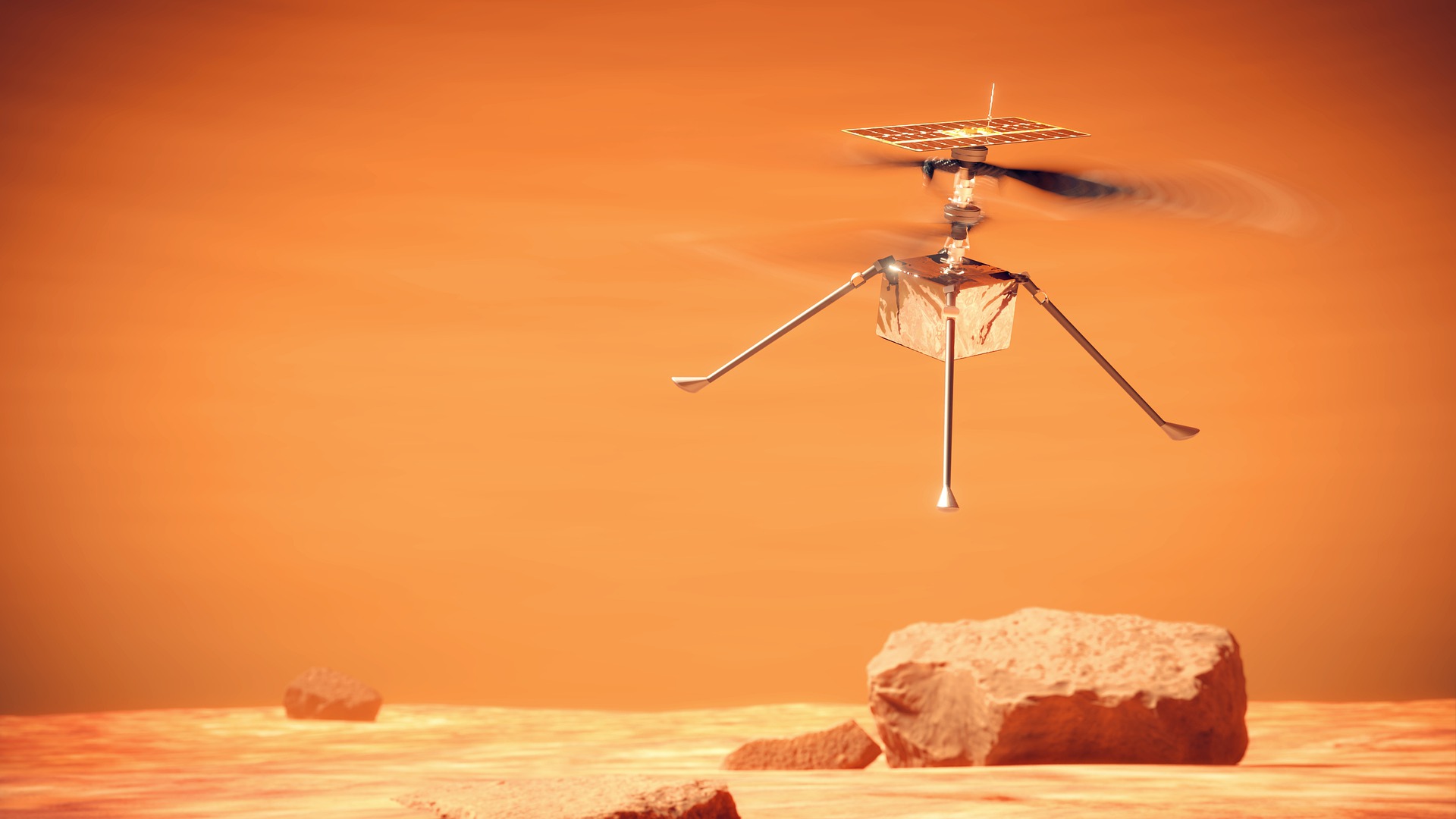19 April 2021 saw a world first. A helicopter took flight for 40 seconds. A short hover before turning and landing. It’s an incredible technical achievement. But this flight is unlike any flight you’re probably familiar with. This one took place over 290 million kilometres away, in an atmosphere less than 1% the density of Earth’s.
Of course, I’m talking about Ingenuity, the Mars Helicopter. 118 years after Wilbur and Orville Wright took off for the first heavier than air flight on Earth, NASA has accomplished the first flight on another planet. As a fun aside, the location Ingenuity took flight from is now called ‘Wright Brothers Field’ to mark the first extra-terrestrial airfield.
I’ve written previously about space exploration and its value for the profession of arms. NASA’s latest achievement offers a good opportunity to re-visit this. Ingenuity is, as acting NASA Administrator Steve Jurczyk said, ‘the latest in a long and storied tradition of NASA projects achieving a space exploration goal once thought impossible… We don’t know exactly where Ingenuity will lead us, but today’s results indicate the sky – at least on Mars – may not be the limit.’
What made Ingenuity, and so many other NASA projects, achieve the seemingly impossible is what we, as military professionals, will also need in preparing for the future.
We will need to show the same vision and patient persistence that it took to imagine, test, and create Ingenuity over its six years of development. The same drive to dare and to learn, regardless of failure or success, that the team has shown and spoken about. The same creativity to overcome the challenges faced leading up to the first flight. The same determination and dedication to each other for the mission that I have little doubt they shared. And the same willingness and capacity to work with others, from industry partners to the Deep Space Communications Network that allowed us to view the pictures of this historic moment.
We need these attributes, as a collective and as individuals, to remain relevant in a rapidly shifting world and to be ready for the future of war. While the history of the future of war often reflects our failures to anticipate its changing character, we must continue to strive for the qualities that will ensure we can adapt to whatever that future war may look like.
Remaining relevant and being ready to protect our nation’s interests is a key part of our responsibility as a military. We can continue to realise these lofty goals through developing our character and intellectual edge, but we must also show a willingness to innovate and adapt. Without challenging the status quo and expanding our flight envelope, much as Ingenuity has, we risk being left behind in a rapidly changing world.
This means re-visiting how we do business, whether it’s fighting in the air, procuring new capability, or even how we train. By experimenting with the existing and emerging, we can discover new ways of operating to improve our likelihood of success in conflict. This call for progress is nothing new and hardly original. But Ingenuity renews the call to not only take small steps, but also giant leaps in the pursuit of being ‘future ready’.
The profession of arms is one that carries a heavy burden, but it’s also one that expects us to excel, or as the Ingenuity’s motto goes, to “Dare Mighty Things”.
Chris Wooding is a Trainee Officer at the Royal Military College Duntroon. He is a Distinguished Graduate of the Australian Defence Force Academy and a Contributing Author for Grounded Curiosity. You can continue the discussion on Twitter @cr_wood1.

